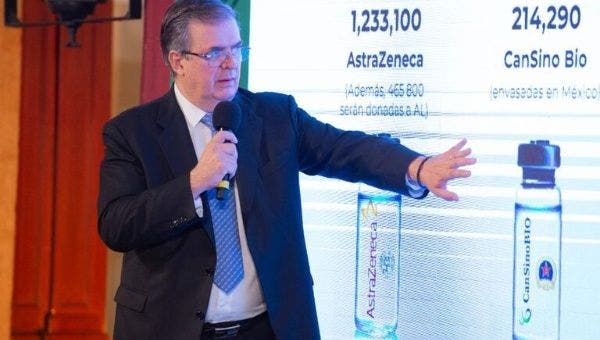
MEXICO CITY, June 23 (NNN-TELESUR) — The Secretary of Foreign Affairs (SRE), Marcelo Ebrard, announced that in the coming days, Mexico would donate vaccines against the coronavirus to five countries in the Latin American and Caribbean region based on its policy of solidarity.
As part of the regular press conference at the National Palace, the federal official stressed that the government, in addition to promoting universal access to vaccines against the SARS-CoV-2 virus, is in the position to help other neighboring nations.
“The president has instructed Mexico to act in congruence with this approach; that is to say, if we are demanding universal access, equity, on the issue of vaccines, Mexico must act accordingly,” he added.
In this sense, Ebrard pointed out that the AstraZeneca vaccine produced in collaboration with Argentina at the Liomont laboratories in Querétaro will help protect the population of Latin America.
Based on the announcement, Guatemala, El Salvador, Honduras, Jamaica, and Trinidad and Tobago will receive Mexican donations of COVID-19 vaccines in the coming days.
Other nations such as Belize, Bolivia, and Paraguay have already received the immunizers that Mexico has donated to help advance their vaccination processes.
“From the beginning, Mexico has advocated for equitable access to supplies, medicines, and vaccines, and is acting congruently: we have donated vaccines and supplies against #COVID19 to Latin America and the Caribbean and will continue to do so this week in Guatemala, Honduras, El Salvador, Jamaica and Trinidad, and Tobago.”
According to the Foreign Minister, last June 16, Mexico donated more than 1,000,000 medical supplies to Guatemala.
Since December and up to now, Mexico has received some 50,288,115 doses against the SARS-CoV-2 virus from six different pharmaceutical companies, among them, CanSino, Pfizer, and Sputnik V.
According to information provided at the same press conference by the Mexican Secretary of Health, Hugo López Gatell, some 28,198,409 people have already been vaccinated in this country, of whom 17,047,687 have completed the full vaccination schedule, and the rest have only received one dose.
Thus, 32 percent of the population is immunized, and the campaign is now moving forward for young people between 30 and 39 years of age. — NNN-TELESUR


